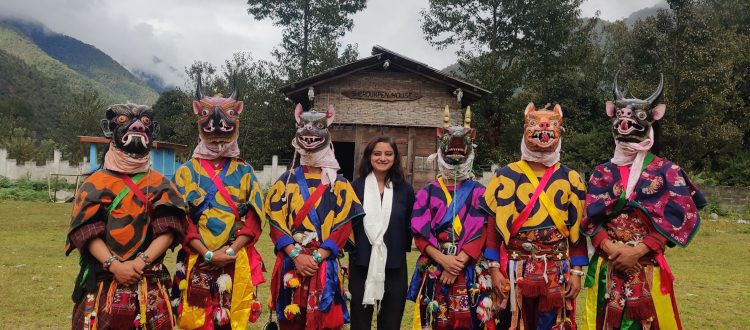Art for conservation: The Vanwasi-Aadiwasi project in Arunachal Pradesh
The Vanwasi-Aadiwasi Project envisions a revival of indigenous practices through art and active engagement with tribal communities. Moreover, it aims to empower elders of the community to uphold traditional wildlife conservation practices and encourage the community’s commitment to nature conservation as a cultural treasure. The approach is community-led and participative, promoting strong community ownership and the revival of traditional practices.
One of the tribal communities involved in this initiative is located in Arunachal Pradesh where the Black-necked crane (Grus nigricollis), also known as Thung Thung Karmo holds a deep folkloric significance. These birds are believed to be connected to the incarnation of the sixth Dalai Lama among the Monpa tribe of Arunachal. Revered in Buddhism, hunting of this species is strictly forbidden in these areas. A local belief that the bird brings good luck or a bountiful harvest has its origins in its migration pattern. However, their population is at risk due to cultural taboos and the declining interest of the younger generation. The erosion of cultural values further jeopardises the birds’ survival.
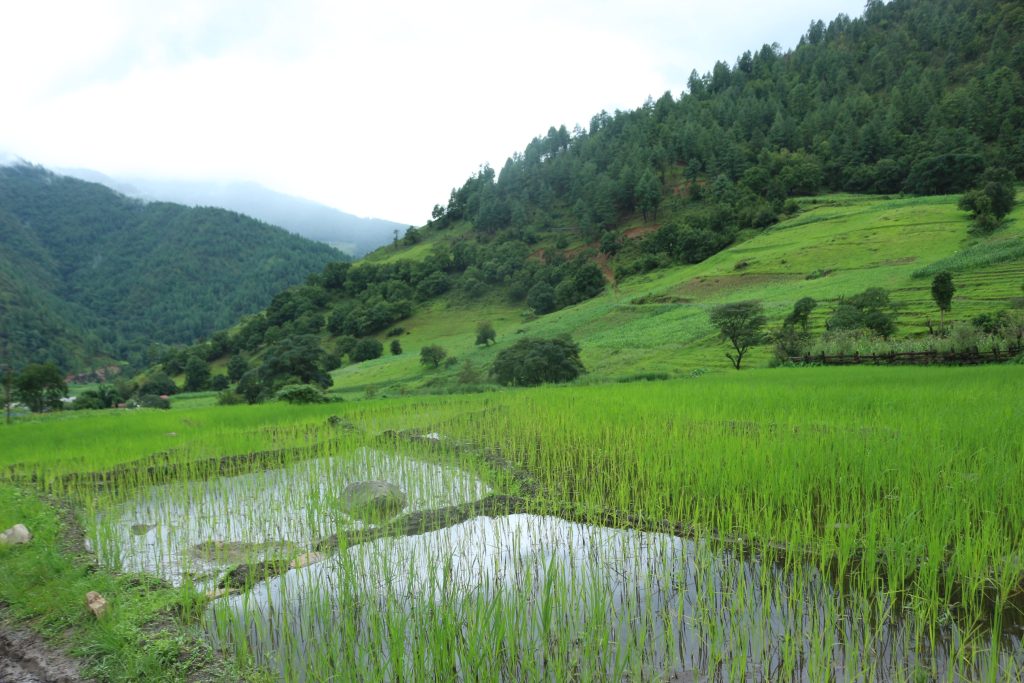
The black-necked crane prefers marshy wetlands and paddy fields for breeding and nesting | Photo by Tripti Shukla
The Black-necked crane is a Schedule I of the Wildlife (Protection) Act, 1972 and is listed as ‘Endangered’ on the IUCN Red List. Each year, they migrate to lower elevations of the Himalayas to avoid the harsh winters and to breed. This species prefers wide, shallow marshes, river valleys, and agricultural land. As wintering grounds, they primarily use marshy wetlands and paddy fields. Notably, there are only two areas in Arunachal Pradesh in which certain species can spend the winter: Zemithang and Sangti Valley.
The tranquil foraging spots in Sangti Valley are disrupted by the massive influx of tourists, leading to a decline in the annual arrival of the Black-necked cranes to a mere 3–4 individuals, according to a study conducted in 2014. Some of the long-term major threats in Sangti that need to be addressed include a lack of awareness, local threats like changes in cropping patterns, high tourist footfall, and climate change.
Recognising the urgency of this conservation project, the Wildlife Trust of India (WTI) played a crucial role by providing a small grant through their Rapid Action Project (RAP) to initiate and support the project in Shergaon and Sangti Valley. WTI’s role primarily involved financial assistance and oversight to ensure the project’s objectives aligned with its conservation goals. Several workshops have been organised for the locals including a creative nature art workshop for school children, aiming to educate them about conservation and demonstrate how art could be a powerful medium for raising awareness and fostering a sense of responsibility among them. I researched methods to conserve indigenous practices, interacted with homestay owners and farmers to understand market strategies, and contacted resource persons to facilitate these workshops. Furthermore, I was involved in designing products that can be aligned with nature and she illustrated artworks reflecting traditional practices for the community to preserve and showcase the cultural heritage of the area.
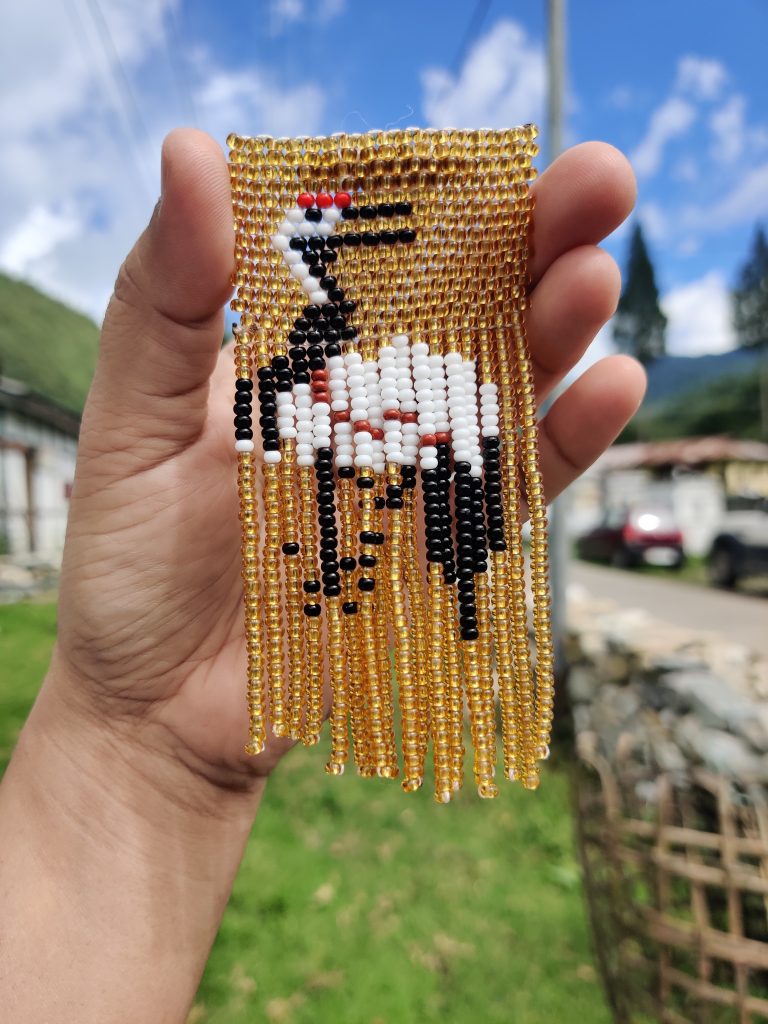
The black-necked crane holds a deep folkloric and cultural significance in Arunachal Pradesh| Photo by Tripti Shukla
Recently, the Sangti village school committee facilitated programmes for students to learn about nature through art and outdoor activities. Workshops, Black-necked crane surveys, and meetings with self-help groups were organised, while cultural aspects like art, craft, and traditional practices were documented during the survey. Locals who have always been engaged in protecting the Black-necked cranes’ habitat using their traditional wisdom and customs helped in raising awareness as well.
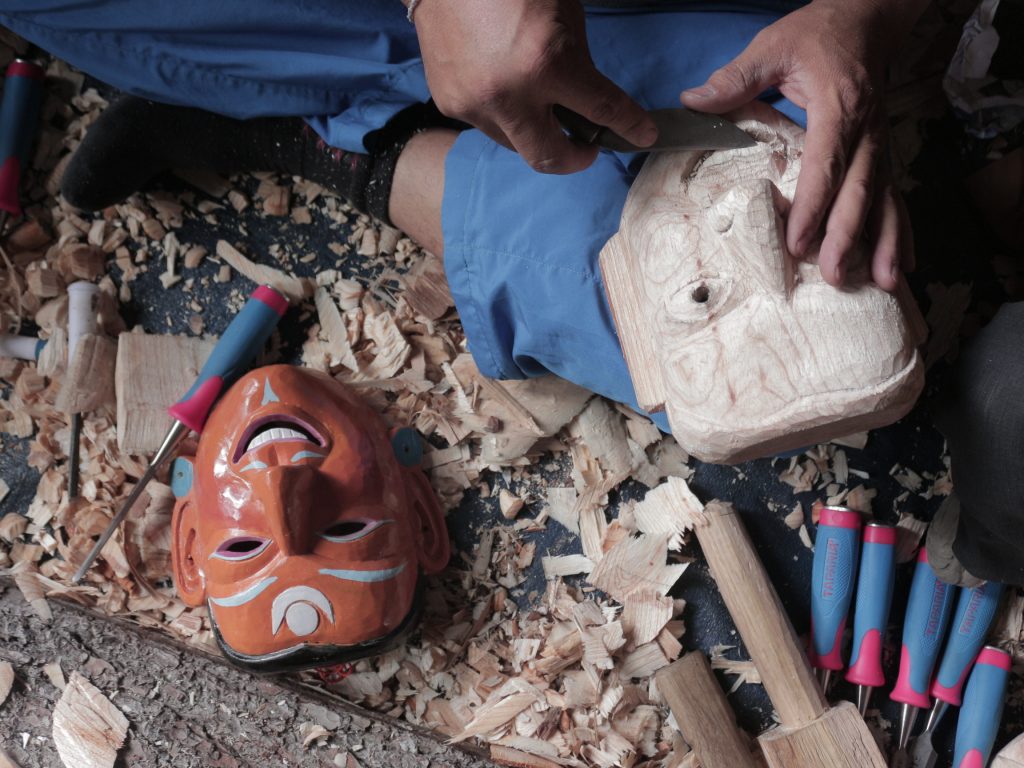
Workshop on traditional wooden mask making and other indigenous crafts were organised to engage the community | Photo by Tripti Shukla
Workshops focussing on making bead accessories and wooden masks were organised In collaboration with Garung Thuk NGO in Shergaon located in the West Kameng district. The handcrafted masks are used in their cultural dances of Aji-Lhamu and Bardo chham. The participants were excited to receive training from Pema Tashi, the region’s sole artist skilled in this craft. The success of these workshops lies in their ability to bridge the gap between generations, preserving indigenous practices, and fostering a deep-rooted commitment to nature conservation.
Norbu Thungon, a participant, expressed their passion for crafting and reflected on a cherished memory of participating in a mask-making session through VKV School in Bomdila. They emphasised the significance of this opportunity, considering the limited availability of such events in their remote village. Norbu is committed to honing their mask-making skills and plans to create designs featuring a bear and a bird in the near future.
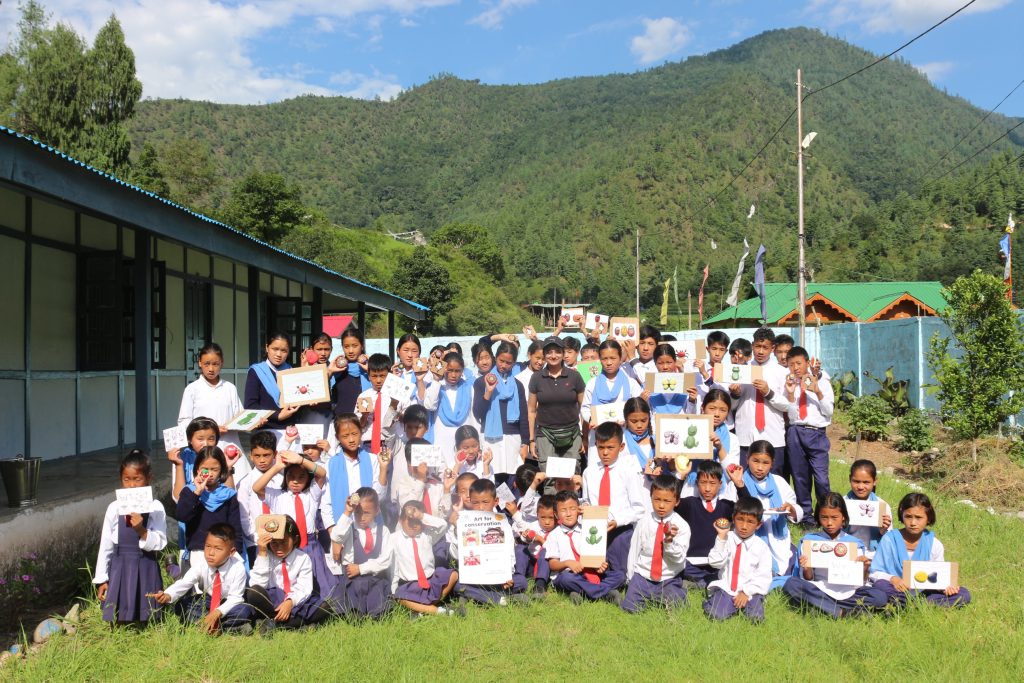
Students participated in the awareness workshops in Sangti village | Photo by Tripti Shukla
Tsering Lamu, the School Headmistress, commended the initiative of using art as a medium for conversation. She expressed that this approach offers children the opportunity to explore and understand nature through artistic expression.
Passang Tsering, Advisor, Sangti Village Council, emphasised the need for collaborative efforts in innovative ideas to contribute to nature conservation and safeguard the habitat of Thung Thung Karmo.
Tripti Shukla is an independent wildlife researcher and artist. Founder of the ‘Vanwasi-Aadiwasi’ project, she is working with tribal communities of India and documenting their traditional practices in the context of how their art, culture and heritage contribute to nature conservation.

